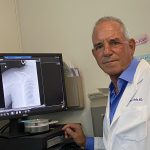ACR CONVERGENCE 2020—In her ARP keynote address on Friday, Nov. 6, Empowering Patients to Make an Impact on the Future of Healthcare, Jen Horonjeff, PhD, described a study in which researchers gathered data on pain and activity level among arthritis patients. In her view, the study provided a cautionary tale. Researchers expected the study subjects…









